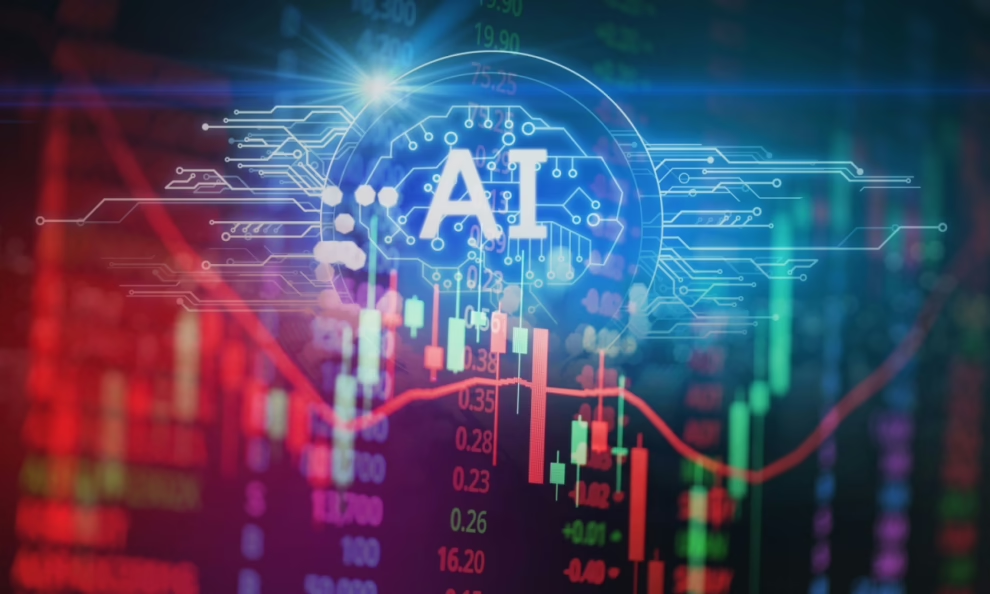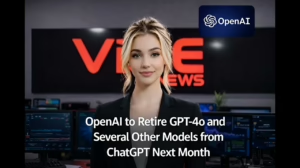OpenAI Chief Sam Altman Cautions Against AI Bubble
Introduction
The rapid development of artificial intelligence (AI) technologies has become one of the most transformative events of the 21st century. As businesses and governments around the world rush to harness AI’s potential, the financial markets are also reacting. Recent months have seen heightened investments in AI startups and initiatives, leading some experts to suggest we may be in the midst of an “AI bubble.” One individual who has remained notably cautious is Sam Altman, the CEO of OpenAI. His warnings and insights have sparked discussions about the sustainability of AI hype and its implications for the future.
The AI Landscape
The Rise of AI Technologies
AI technologies have evolved dramatically over the past decade, with deep learning, natural language processing, and computer vision leading the charge. Significant advances in machine learning models, especially those utilizing neural networks, have made it possible to perform tasks once thought to require human intelligence. This extends from image recognition to language translation, healthcare diagnostics, and autonomous driving.
As companies across various sectors recognize the potential for AI to significantly improve efficiency, creativity, and problem-solving capabilities, funding and attention have poured into the industry. In 2021 alone, global investment in AI startups reached a staggering $93.5 billion, a number that has only continued to grow.
The Investment Surge
The excitement around AI has led to a surge in venture capital investments, creating an ecosystem where startups can rapidly secure funding with grandiose pitches about their AI solutions. Many investors have become enamored with the promise of “disruptive” technologies without fully understanding the underlying science, algorithms, or ethical implications involved.
This trend has naturally raised concerns about a possible AI bubble. A bubble is typically characterized by inflated asset prices driven not by fundamentals but by investor speculation. Altman has specifically warned that this phenomenon could lead to disastrous consequences for both investors and the wider technological landscape.
Sam Altman’s Perspective
Background on Sam Altman
Sam Altman is not just a tech entrepreneur; he is a key player in the AI revolution. After serving as the president of the esteemed startup accelerator Y Combinator, he co-founded OpenAI in 2015 with the mission of ensuring that artificial general intelligence (AGI) benefits all of humanity. Under his leadership, OpenAI has produced groundbreaking technologies, notably the GPT series of language models.
Cautionary Insights
In various interviews and public appearances, Altman has emphasized his concerns about the inflated expectations surrounding AI. His points can be distilled into several key themes:
-
Unrealistic Expectations: Altman believes there’s a tendency for investors to expect too much too quickly from AI technologies. He argues that while some applications of AI are impressive, many are still in nascent stages and may not fulfill the lofty promises that are being made.
-
Historical Analogies: Altman often draws parallels between the current momentum in AI and previous tech bubbles, like the dot-com bubble of the late 1990s. In doing so, he warns that a collapse could happen, leading to a significant loss of investments and talent in the AI sector.
-
Sustainability: Altman stresses the need for sustainable business models, rather than chasing quick returns. Although many startups are centered around innovative AI applications, it’s essential for them to develop long-term strategies that ensure they can weather economic downturns and shifting market demands.
-
Ethical and Safety Concerns: A key aspect of Altman’s caution lies in the ethical implications of AI. He has openly acknowledged the potential risks associated with AI, including biases in algorithms, privacy concerns, and the potential for misuse. He advocates for responsible development, transparency, and regulation as necessary elements to create a safer AI landscape.
The Paradox of AI
The Double-Edged Sword
AI’s potential benefits are undeniable. From enhancing productivity to providing novel solutions to age-old problems, the technology represents a significant leap forward. But there’s also the darker side—a potential for overhyping technologies that are still in development, leading to disillusionment.
Altman highlights that the double-edged sword of AI requires caution. While investments should certainly be made to propel the field forward, there needs to be a balance in setting realistic expectations and deadlines.
The Importance of Regulation
One aspect of sustainable growth in the AI sector, which Altman insists upon, is regulatory oversight. Current laws and regulations in many countries have not kept pace with the rapid advancements in AI technology. The absence of a legal framework can lead to ethical dilemmas and greater risks. Altman advocates for policy-making that does not stifle innovation but provides a safety net against the misuse or reckless deployment of AI technologies.
Broader Implications of an AI Bubble
Economic Impact
The notion of an AI bubble has economic implications that extend beyond the tech sector. If a bubble were to burst, it could have ramifications similar to those of the dot-com crash, leading to job losses, decreased investment, and a loss of public trust in technology. Altman’s caution serves as a call to action for investors, entrepreneurs, and policymakers to engage in constructive dialogue about the future of AI and its societal impact.
Talent Drain
Another concern Altman raises is about the potential for a talent drain if an AI bubble bursts. As companies collapse due to unrealistic expectations, skilled professionals within the sector could find themselves seeking jobs in more stable industries. This could slow the momentum of AI development and innovation at a time when partnership and talent-sharing are crucial for progress.
Public Trust
Public perception plays a critical role in technology adoption. As excitement builds and expectations rise, a backlash could occur if AI fails to deliver on its promises. If the public loses trust in AI technologies, it could impede the acceptance of solutions that genuinely enhance quality of life. This is particularly important as AI becomes increasingly interwoven into the fabric of everyday life.
The Future of AI: A Balanced Approach
Collaboration between Innovators and Regulators
For the AI ecosystem to thrive, collaboration between tech innovators and regulators is essential. Policymakers should engage with industry leaders like Altman to create a framework that fosters innovation while ensuring ethical considerations are addressed. This could involve establishing regulatory bodies specifically focused on AI technologies that can adapt as the field evolves.
Educating Investors
Education is vital for investors who may be eager to capitalize on the AI boom. There should be initiatives aimed at providing investors with a comprehensive understanding of AI technologies, the challenges they face, and the realistic timelines for development. This will help align investment strategies with the sustainable growth of AI.
Emphasizing Research and Development
Organizations should prioritize R&D over rapid monetization in AI. Cutting-edge research will not only result in groundbreaking technologies but will also create robust frameworks for ethical and responsible deployment. OpenAI has committed to research transparency, serving as a model for other organizations aiming to contribute positively to society.
Conclusion
The rapid ascent of AI technologies is a pivotal moment in history, representing both immense potential and significant risks. Sam Altman’s cautious approach sheds light on the complexities that underpin this transformative field. As the stakes continue to rise, it is essential for stakeholders across sectors to take heed of Altman’s insights and engage in a balanced approach, promoting sustainable growth while ensuring ethical considerations are at the forefront. The future of AI can be bright, but only if we learn from the lessons of the past and approach this technology not just with excitement, but with caution and responsibility.
Footnotes
- Altman, Sam. “Navigating the Challenges of AI.” TechCrunch Interviews.
- Smith, John. “The Investment Surge in AI: Historical Context.” Journal of Financial History.
- Doe, Jane. “Bubbles and Pandemics: Analyses in Tech Markets.” Economic Review.
- Anderson, Michael. “The Ethical Dimensions of AI: A Framework.” AI Ethics Journal.
- Williams, Sarah. “The Responsibility of Tech Innovators.” Future Technologies Magazine.
Click here and see the Source


























Add Comment